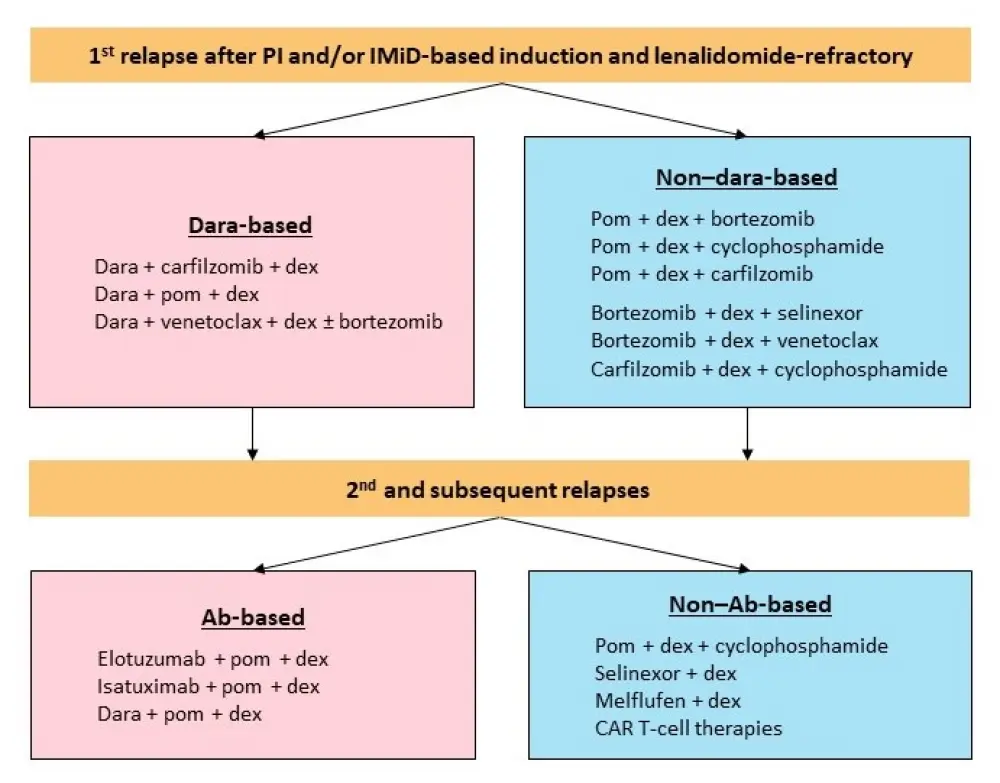All content on this site is intended for healthcare professionals only. By acknowledging this message and accessing the information on this website you are confirming that you are a Healthcare Professional. If you are a patient or carer, please visit the International Myeloma Foundation or HealthTree for Multiple Myeloma.
The mm Hub website uses a third-party service provided by Google that dynamically translates web content. Translations are machine generated, so may not be an exact or complete translation, and the mm Hub cannot guarantee the accuracy of translated content. The mm and its employees will not be liable for any direct, indirect, or consequential damages (even if foreseeable) resulting from use of the Google Translate feature. For further support with Google Translate, visit Google Translate Help.
The Multiple Myeloma Hub is an independent medical education platform, sponsored by Bristol Myers Squibb, GSK, Legend Biotech, Pfizer, and Roche. Funders are allowed no direct influence on our content. The levels of sponsorship listed are reflective of the amount of funding given. View funders.
Now you can support HCPs in making informed decisions for their patients
Your contribution helps us continuously deliver expertly curated content to HCPs worldwide. You will also have the opportunity to make a content suggestion for consideration and receive updates on the impact contributions are making to our content.
Find out more
Create an account and access these new features:
Bookmark content to read later
Select your specific areas of interest
View multiple myeloma content recommended for you
During the 46th Annual Meeting of the European Society for Blood and Marrow Transplantation (EBMT), the Multiple Myeloma Hub spoke to Meral Beksaç, Ankara University School of Medicine, Ankara, TR, about immunotherapy for MM. We asked, Is there an optimal time to deploy immunotherapies in multiple myeloma?
Is there an optimal time to deploy immunotherapies in multiple myeloma?
In this video, Meral Beksaç talks about how the field of immunotherapy has been advancing rapidly in recent years, with novel monoclonal antibodies (mAbs), alone or with drug conjugates, being developed for use at diagnosis and relapse. Patients today can benefit from the use of anti-CD38 mAbs alongside chemotherapy, whether they are eligible for transplant or not. High rates of measurable residual disease negativity can be achieved by using these treatments.
Figure 1. New ESMO guidelines proposal for the treatment of relapsed multiple myeloma, presented by Meral Beksaç at EBMT 2020, courtesy of María-Victoria Mateos.1

References
Please indicate your level of agreement with the following statements:
The content was clear and easy to understand
The content addressed the learning objectives
The content was relevant to my practice
I will change my clinical practice as a result of this content
Your opinion matters
On average, how many patients with MGUS/smoldering MM do you see in a month?


 Meral Beksaç
Meral Beksaç